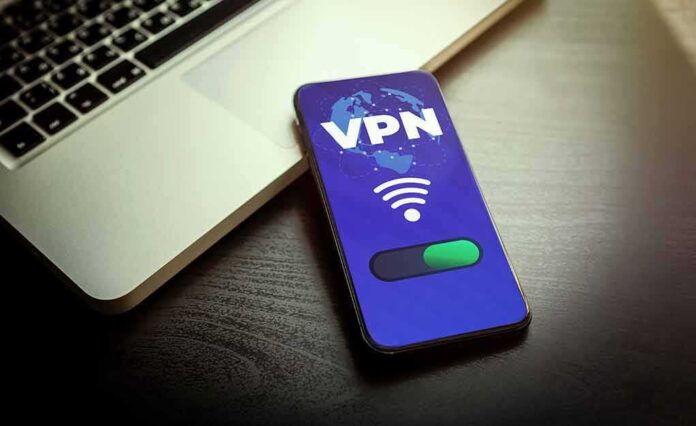
Ukraine’s recent arrest of a VPN operator has brought to light the intricate cyberwarfare dynamics in the ongoing Ukraine-Russia conflict.
At a Glance
- 28-year-old hacker arrested in Khmelnytskyi for running a VPN aiding access to Russian websites.
- The VPN allowed users to bypass sanctions and access the restricted Russian internet segment, Runet.
- The VPN handled over 100 gigabytes of data daily and was active since Russia’s invasion of Ukraine.
- The suspect faces up to 15 years in prison under Ukraine’s Criminal Code.
Operation and Impact of the Illicit VPN
Ukrainian authorities have taken decisive action by arresting a 28-year-old man in Khmelnytskyi, accused of facilitating access to Russian websites through an illegal VPN service. This service allowed users to bypass Ukrainian sanctions aimed at curtailing Russian internet access. From his apartment, the suspect managed a network of servers across multiple countries, capable of processing over 100 gigabytes of data daily. Authorities believe this service has been active since the onset of the Russian invasion.
The VPN’s infrastructure was vast, providing users access to over 48 million Russian IP addresses. Investigations suggest that Russian intelligence services may have exploited this network to gather sensitive user information. Ukrainian law enforcement has seized servers and equipment from various locations as part of their crackdown on unauthorized networks.
Ukraine Arrests VPN Operator Facilitating Access to Russian Internet https://t.co/qIZllYWMVR
— Slashdot (@slashdot) October 11, 2024
Legal and Investigative Proceedings
The arrest has legal implications, with the suspect potentially facing up to 15 years in prison for unauthorized interference with information systems during martial law. This reflects the seriousness of cybersecurity violations at a time of heightened military conflict. Furthermore, Ukrainian cyber police and the National Security Service are actively involved in ongoing investigations to uncover further connections and potential ties to Russian special services.
The situation underscores the significant role that VPNs play in the digital battlegrounds of the Ukraine-Russia conflict. Authorities are focused on dismantling these networks to prevent any potential cybersecurity threats that could compromise national security.
The Strategic Role of VPNs in Cyberwarfare
VPN services have become pivotal tools in cyberwarfare due to their ability to obscure user activities and provide access to otherwise restricted information. As this case illustrates, they can bypass national security measures, making their regulation and surveillance critical in conflict zones. Ukraine’s proactive stance in monitoring and dismantling unauthorized VPN services demonstrates a commitment to bolstering digital defenses.
Authorities remain vigilant as investigations continue, as they strive to maintain national security and thwart any attempts of unauthorized digital access. Initiatives like these illustrate the evolving nature of modern warfare, where the digital realm becomes as crucial as traditional battlegrounds.






















